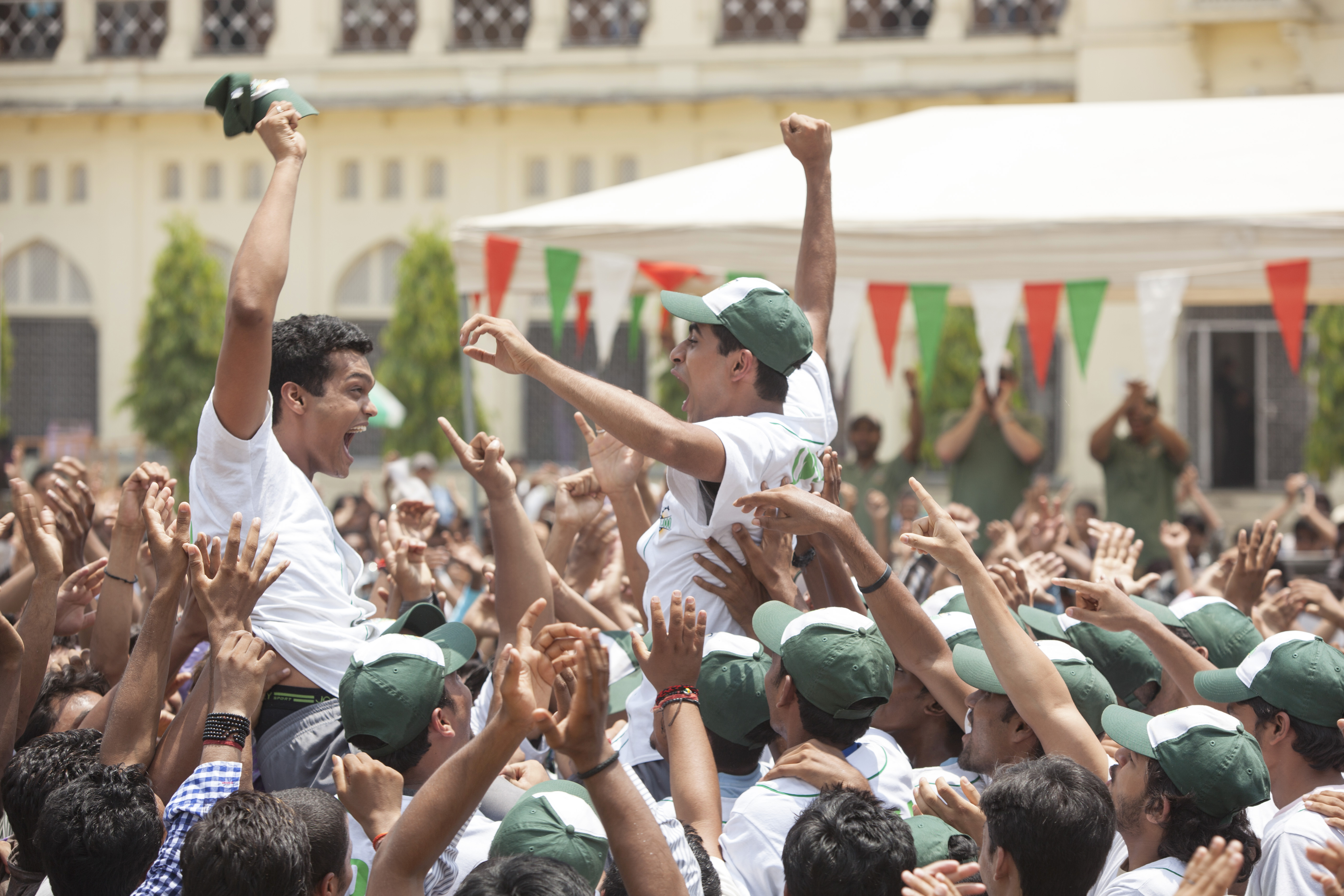Q&A: Bruin lends voice to Disney’s ‘Million Dollar Arm’

The soundtrack to Walt Disney Pictures’ “Million Dollar Arm” features Gaayatri Kaundinya, who recently graduated from UCLA with a bachelor’s degree in ethnomusicology. Kaundinya’s opportunity to sing for the soundtrack came from an internship with film composer A.R. Rahman. (Walt Disney Pictures)
By Sebastian Torrelio
June 23, 2014 12:00 a.m.
Walt Disney Pictures’ “Million Dollar Arm” is a showcase of Indian national pride – the true story of two young men from the Indian countryside who get the chance to train for a Major League Baseball tryout. After winning a heated competition, they are flown to the United States for the opportunity to become the first signed Indian players in the history of the league.
What viewers may not know is that “Million Dollar Arm” sports a bit of Bruin pride as well. Gaayatri Kaundinya, who graduated this spring with an ethnomusicology degree, had her own breakthrough opportunity to sing for the soundtrack of the film, with her vocals featured on most of the tracks. The Daily Bruin’s Sebastian Torrelio spoke with Kaundinya to discuss her work and where it has taken her.
Daily Bruin: When did you first find out about the film?
Gaayatri Kaundinya: I started interning with film composer A.R. Rahman (“Slumdog Millionaire”) – he basically has a studio here in Los Angeles and I started interning with him a year or a year and half ago. That’s how I got involved with this project. He was the composer for the score of this film; he ended up using my voice.
DB: Was it odd for you to be thrown into such a big project?
GK: It was kind of business as usual. It’s my job as an intern. I end up singing on many of (Rahman’s) projects. I ended up doing a lot of demo score work, whatever he tells me to. It wasn’t anything out of the ordinary. But once I found out it was going to be used in the final score, it was a little weird.
DB: How extensive was the process?
GK: It didn’t take me very long to record everything. We did about six to eight (pieces). In the album of the score I’m in two of the tracks, but in the score itself I have about six (pieces), and my voice is in all of them. (Rahman) thought it was something my voice would go well on. He threw me into this and said, “Let’s try a couple things,” and basically that’s how the music was born.
DB: What do you think of the finished project?
GK: I think the movie itself is brilliant. … I’m definitely really honored that a track I did for them is behind the Disney logo. Originally we just put it in for the part where they find the two men to pitch at the speed that (the baseball scouts) want. After months of looking for cricket players, they find players who can throw at this incredibly fast speed. That’s what the track was recorded for. But the director liked (the track) so much that they ended up using it for the opening of the movie.
DB: Did you realize how big of a project this would be while you were working on it?
GK: I really didn’t. We keep that out of where we work. While you work on a film, you block out the results in your mind. You focus on putting your best work out there. While we were working on it, we thought about that and putting together the best possible music and artwork that we can. That’s what it ends up being.
DB: Did it feel special being in the limelight of a motion picture?
GK: Well yeah, when I put it up on Facebook I got a bunch of “likes” on it from people I haven’t talked to in forever, which is interesting. But people were excited, and they jumped for joy when they saw me in the credits. When I saw it in the theater I was like, “Oh this is pretty awkward; everyone in this theater knows what I sound like.” It was pretty weird – but a good weird.
DB: How long have you had aspirations for working in the music industry?
GK: I’m actually an Indian classical musician. I was listening to music ever since I was a little kid. When I was about 2 years old, I ended up listening to my favorite artists on the CDs my grandfather used to play. I told my parents I basically wanted to learn music from him. And when I was 4 years old, I learned music from my teacher Ali Akbar Khan – so my life has been playing music and singing. So it’s always been something I’ve been super serious about.
DB: Why did you choose to pursue your musical career at UCLA?
GK: I’ve always had an interest in (music), so I always decided I’d take my musical interest and go for it. I’ve always wanted to work on what I do, and make it that thing I pursue with my academics. I love the ethnomusicology program here; it has resources and opportunities for anything you want to do in the music industry.
DB: How well does your film music work tie into your studies?
GK: It’s a little bit of a tangent. Ethnomusicology is a pretty broad field in that all different types of music are encompassed in what we study. I have taken film music classes, and it’s really awesome to be part of the production itself. … I take that back, it is pretty related. This project was such a mix of different styles of music and people, and bringing them together in a huge way. I think this is definitely related to what I’m doing – I think it’s pretty cool.
Compiled by Sebastian Torrelio, A&E; senior staff.


